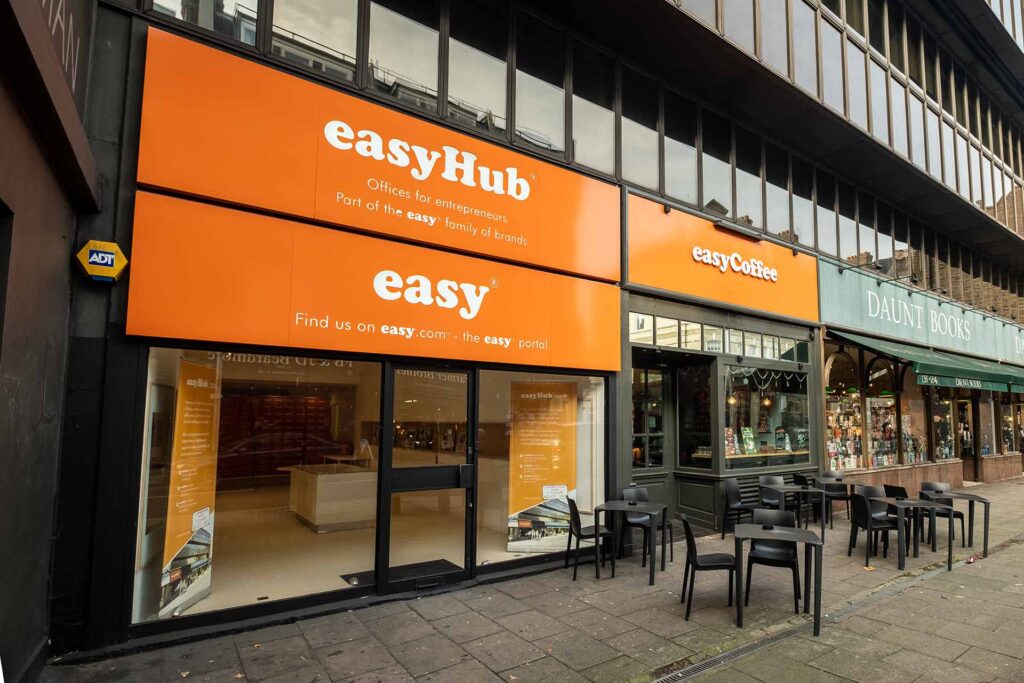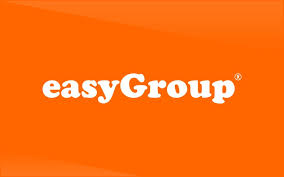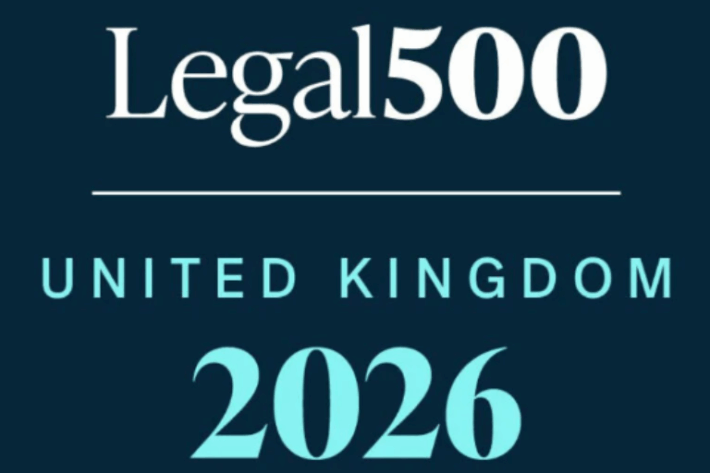Not so easy! Another blow for easyGroup


easyGroup, the owner of the “easy” brand, aggressively enforces its trade mark rights.
In the latest case, easyGroup has failed in its attempt to prevent the use of the trade mark “Easyfundraising” and has had some of its trade marks revoked for non-use.
There were also some very unhelpful findings made by the judge which may inhibit the enforcement of easyGroup’s rights in the future. These include findings that there is very little similarity between “easy” prefixed marks as the term “easy” is not the dominant and distinctive part, and consumers are not likely to be confused because there are lots of “easy” prefixed businesses on the market.
This case does illustrate the difficulties in enforcing descriptive elements of brands and the narrower scope of rights awarded to them. It highlights the arguments defendants should make when countering claims based on such marks.
The case
The claimant, easyGroup, is a company controlled by Sir Stelios Haji-Ioannou, which administers or licenses various companies that trade under the “easy+” brand, such as easyJet, which is the largest and perhaps the best known of them. easyGroup owns a large number of registered trade marks for brand names such as easyJet, easyMoney, easyHotel and easyCar and has been found to represent a “family of marks”. These trade marks are often used in a particular form, namely the pantone 021C orange background and white lettering in cooper black font.
The first defendant (”EFL”) is a company founded in about 2003 by the third defendant, Mr Woodroffe, which operates a website (www.easyfundraising.org.uk). This is a platform for members of the public to use to click through to various retailers’ websites and then buy goods or services from them. There are now thousands of retailers or providers who advertise on or participate in the platform, with links to their own websites. The members of the public use the platform with the knowledge and intention that a small part of their total spend will then be remitted by each retailer to EFL, which in turn then passes on some of that commission to the charity or good cause that the member of public has registered on the platform as its chosen cause.
In about November 2005, EFL started to trade using the sign “easyfundraising” in the following forms, which evolved over the years.

The second defendant owns shares in the first, the third defendant (who admitted liability) is a director of EFL and the fourth defendant (“Palatine”) is a private equity firm, which manages (among others) two funds that first invested in EFL in 2020. The claimant alleged that Palatine is jointly and severally liable for EFL’s torts, but Palatine denied any such liability on the basis that it has no control over EFL’s activities and did not direct them.
The claimant relied on various trade marks including easyJet, easyHotel, easy.com, easyMoney, easyGroup, easylife, and easynetworks for certain goods and services. Its claims were brought under s10(2) of the Trade Marks Act 1994 (the “Act”) (confusingly similar), s10(3) of the Act (reputation/unfair advantage), and passing off.
The judgment is quite lengthy, but the main points which led the judge to dismiss the claims and revoke certain trade marks are summarised below:
- easyGroup relied on 9 trade marks in its claims, some of which were vulnerable to cancellation for non-use. After reviewing the evidence, the judge found that certain marks should be revoked for all or some of the goods and services for which they were registered. In particular, there was no use of the easyGroup trade mark as it had not been used in a genuine way in relation to the electronic mail services relied upon (on the evidence the services were given away for free, but there was no evidence of creating a market for them) and no use of the easylife trade mark had been made in a form which did not alter its distinctive character. The easyHotel mark was used in relation to hotel bookings, even though it related to bookings in its own hotels, and easyJet’s specification was pared down to retail services “provided to airline passengers connected with… [as per the registered specification]” from the broader terms, “retail services connected with the sale of food and drink etc…”.
- It is worth highlighting that the decision in relation to the easylife marks differed to an earlier decision in EasyGroup Ltd v Easy Live (Services) Ltd [2024] EWHC 2282 (Ch), but the judge held to his view that the following marks were not acceptable examples of use of one of the easylife trade marks as the distinctive elements of the trade mark were left out or other distinctive elements were added to the variants. He thought the distinctive character of the trade mark rests with the word element, easylife, the decorative element, and the strapline:
Trade mark

Variations



EASYLIFE
EASYLIFE LIFESTYLE SOLUTIONS
- When considering the infringement test under section 10(2) of the Act, he found there was no risk of confusion. The judge compared the registered trade marks to the defendants’ signs, and held there was some similarity between the marks, but no similarity between the goods and services (because the public would not consider that easyfundraising were offering the services of third party partners e.g. travel and hotels etc.). The lack of similarity between the goods and services was therefore fatal to the claim. With respect to the marks, he said that, “the level of similarity of the [easyfunding sign] and the easyJet mark is therefore relatively low, there being nothing similar other than the use of the word “easy”, and the fact that it is followed without a gap by another word that is more or less descriptive of what the business is about. The same conclusion applies in relation to the plain word mark.” “In overall terms, therefore, I conclude that the [easyfundraising sign], the plain word sign and the 3 marks would be perceived by the average consumer as having some degree of similarity, but not strongly so, and that the word “easy” would not be perceived as a dominant characteristic of the marks.”
- It is also worth noting that the judge made the following point when comparing the marks: ““Easy” is a common descriptive adjective in everyday use. easyJet, like easyHotel, is a compound description of what the business provides and aims to provide. The word “easy” was not (as at 2005) immediately redolent of a specific brand. The matter would be quite different, even at that time, if [easyfundraising] used the distinctive colours and font that the easy+ brands used, but that is not the case. Without the distinctive orange colour scheme and font, there would be little if any visual connection to easyJet”.
- He highlighted that, the “absence of evidence of actual confusion is not necessarily fatal to a claim under 10(2) [of the Act] , but the longer the use complained of has gone on in parallel with use of the mark without any such evidence emerging, the more significant that absence is likely to be. In assessing the significance of that matter, it is relevant to consider what opportunity there has been for confusion to appear and what opportunity for any such confusion to have been detected: Nuclei at [77].” In this case, there had been extensive disclosure by both sides and no evidence of confusion had been identified over 19 years of trading together.
- The judge did not consider there was any risk of indirect confusion, despite the existence of the “easy” family of marks which would increase this risk. He noted this as there was no evidence of confusion between 2005 and 2007 despite extensive disclosure. His view was that there was no risk of indirect confusion because of the limited similarity between the marks and signs and the presence of other “easy” prefixed businesses on the market.
- For s10(3) of the Act, the judge accepted that there was a reputation in the marks easyJet and easyMoney (the latter of which he said just got over the line), but not easyHotel, which only had one hotel at the time in 2005. When considering if the public would make a link, he held: “In the final analysis, I consider that the question comes down to this: was easyJet so famous, at the relevant times, that any business using the prefix “easy” as part of its name would bring to mind the more famous business, regardless of all other differences? Given the large number of other businesses using the word “easy” (which were identified in the annexes to Mr Hansel’s witness statement, many of which dated back to 2005) and the entirely different context of use of easyfundraising and easysearch, I do not consider that there would be a link formed with easyJet (or indeed easyMoney, which was much less well known) in 2005 or 2007 in the way that is required. Everything other than the presence of the prefix “easy” is so different, and “easy” is just a descriptive word that many businesses used as part of their names, or as a strap line describing their services or goods.” The commercial and professional users of the defendants’ advertising services would be more aware of the other “easy” prefixed businesses and would be approaching the defendant for different services to those provided by easyJet and easyMoney.
- He then went on to find that there was no damage to the claimant or unfair advantage taken by the defendants. One reason given is set out below:
“Third, given the large number of companies that have traded over the years using the word “easy”, the Claimant cannot assert that there was an “insidious transfer of image” here. The Claimant does not have and could not have obtained a trade mark for the word “easy”, only for “easyJet”, “easyMoney” and the like. Those marks do not give it an effective monopoly over “easy”, which would be the effect of the Claimant’s closing submissions (as set out here) contending that EFL obtained an unfair advantage because they did not pay for a licence to use their name…”. - For the reasons given above, there was also no passing off.
- Finally, the judge indicated that Palatine would not have been found liable as a joint tortfeasor following the decision of the Supreme Court in Lifestyle Equities CV v Ahmed [2024] UKSC 17 which indicated that Palatine could not be an accessory to EFL’s infringement and so jointly and severally liable unless it knew the essential facts that made the acts of EFL wrongful and its conduct was a cause of that wrongdoing. In this case, Palatine did not know of the relevant facts and in any event they had not been pleaded. Further the judge found that Palatine did not have voting control of the board when the final rebranding was being planned in 2022 and their investment only took place in 2020.
Paul Cox, Partner at Ionic Legal, said, “this case highlights the risks of enforcing descriptive trade marks and the dangers of allowing conflicting marks to co-exist with the relevant brand as the lack of evidence of confusion during this period will prejudice the case, as will allowing others to trade under such similar brands as it will dilute the brand and make it harder to enforce those rights. It is always best to take early action and to be realistic over the scope of the rights awarded. Following this case, some third parties may take comfort from the decision as they may feel that they can use an “easy” prefixed mark provided it does not incorporate the same or similar livery to that used by the easyGroup businesses. This may encourage more third parties to adopt an “easy” prefixed mark but others may be deterred as they may fear action being taken as they will know that easyGroup are prepared to fight the weaker cases all the way to court”.




